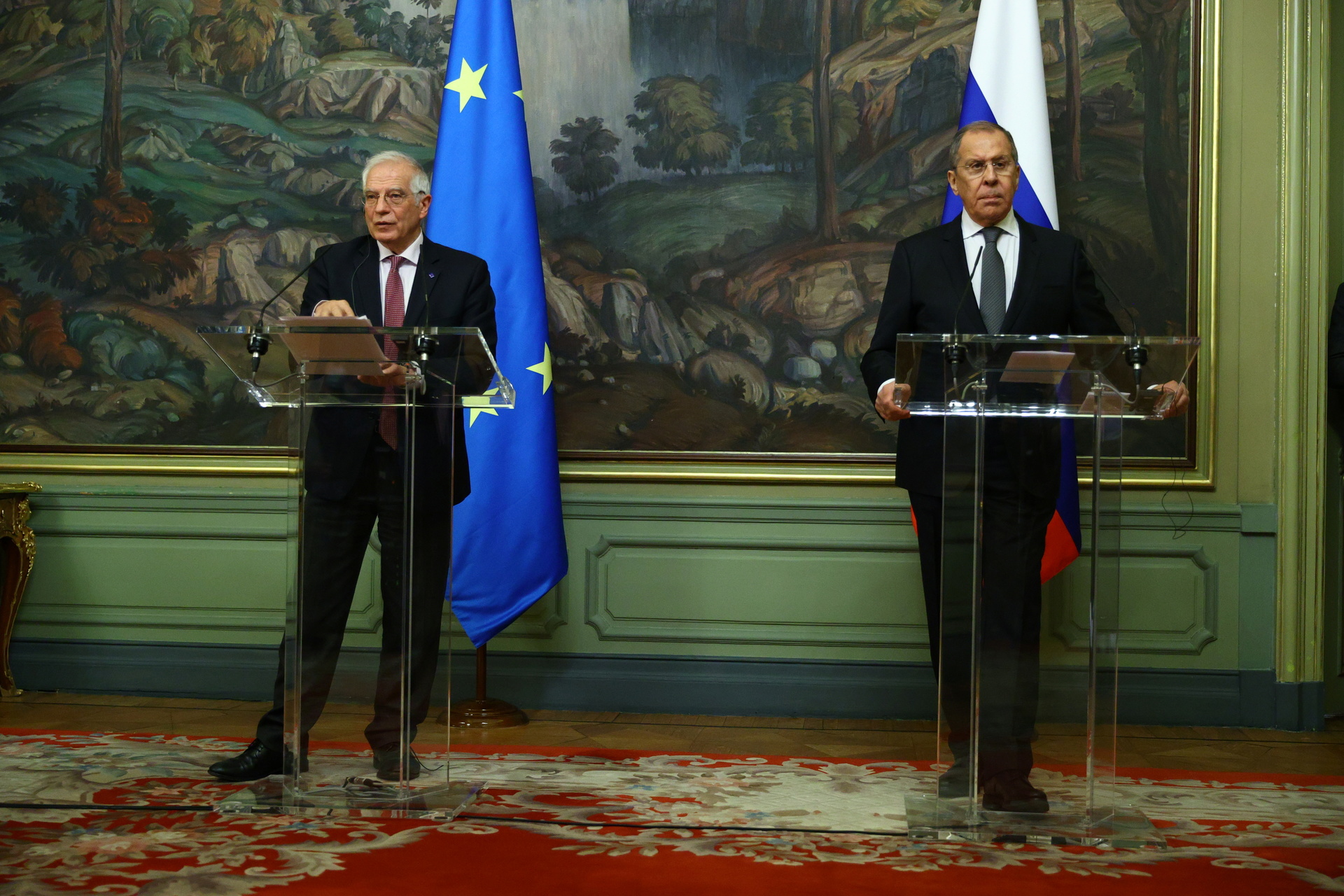Russia will not leave unanswered the destructive actions of the European Union if new anti-Russian sanctions are introduced.
This was stated by Vladimir Chizhov, permanent representative of the Russian Federation to the EU.
“In the event of further destructive actions by the European Union, Russia will not sit idly by, but will find appropriate ways and methods to influence the situation.
You can call it an asymmetric response, you can somehow differently, but, of course, such actions will not remain without consequences, "he said on the air of the Russia 24 TV channel.
At the same time, Chizhov explained that we are not talking about breaking off relations with the EU at the initiative of Moscow.
“Everything that has been frozen in our relations with the EU today, alas, is all the result of the actions of our valiant partners from the European Union and those who support them from different sides,” the Russian permanent representative said.
According to him, the foreign ministers of the EU member states “walked on thin ice” when deciding on new restrictions.
The diplomats tried to take into account several factors at once: not to affect the interests of the EU itself, to win over the liberal public, and also not to harm relations with the new US administration.
Chizhov added that the new sanctions measures are unlikely to be "impressive" in content, but nevertheless represent another missed chance to normalize relations between Russia and the European Union.
“This is a continuation of the inertial downward path that we will have to take into account and react accordingly,” he concluded.
Recall that in early February, the head of European diplomacy, Josep Borrell, paid a visit to Russia, during which he discussed a number of issues with the Russian authorities, including touching on the topic of relations between Moscow and the European Union.
In particular, he met with Russian Foreign Minister Sergei Lavrov, following which he expressed the opinion that Russia and the EU should look for areas for cooperation, despite their differences.
Josep Borrell and Sergey Lavrov
Reuters
© Russian Foreign Ministry
However, after returning from the Russian Federation, the head of EU diplomacy expressed the opinion that the Russian authorities did not use his visit as an opportunity to establish a more constructive dialogue, and after that called for new sanctions against the Russian Federation.
On February 22, he said that the foreign ministers of the EU countries decided to introduce new anti-Russian sanctions against persons who, according to Brussels, are allegedly "responsible for the conviction of Alexei Navalny."
According to him, the process of agreeing on new restrictions should take no more than a week.
Borrell also added that now EU diplomats must develop a new approach to building relations with Russia.
“We must define a certain way of being in order to avoid eternal confrontation with a neighbor who, alas, apparently decided to act as an adversary,” he said.
The Russian Foreign Ministry expressed regret at the decision taken under a far-fetched pretext to prepare "unlawful unilateral restrictions on Russian citizens."
The foreign ministry stressed that the opportunity was again missed for the European Union to rethink the course of artificial linkages, sanctions and pressure in relations with Russia, which has demonstrated complete failure over the past years.
The EU's actions in the ministry were called interference in the internal affairs of Russia, and also recalled that blogger Alexei Navalny was convicted "for economic crimes by a Russian court on the territory of our country in accordance with Russian law."
Recall that Navalny was arrested in mid-January after returning from Germany, where he was undergoing treatment.
As explained in the FSIN, the reason for the detention was Navalny's repeated violations of the probationary period assigned to him in the Yves Rocher case.
On February 2, a meeting was held in the Moscow City Court, following which the court decided to replace Navalny's suspended sentence with a real one.
At the end of January, the Russian Foreign Ministry announced that 2020 will be remembered as a "serious setback in relations" between Russia and the European Union, including because some EU member states "decided to consolidate their ranks on an anti-Russian basis."
Let us also recall that in October 2020, the foreign ministers of the European Union countries agreed on the introduction of anti-Russian sanctions due to the situation around Navalny.
The decision on restrictions in the EU was made after the FRG authorities announced that Navalny was allegedly poisoned with a nerve agent from the Novichok group.
However, Berlin refused to provide any evidence.
The Russian Foreign Ministry then called the decision of the European Union "categorically unacceptable" and announced the expansion of the reciprocal list of representatives of EU member states that are prohibited from entering the territory of the Russian Federation.

